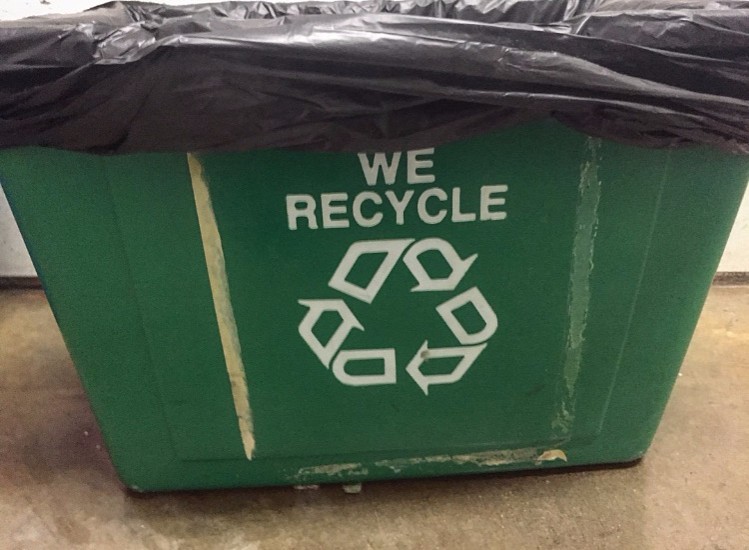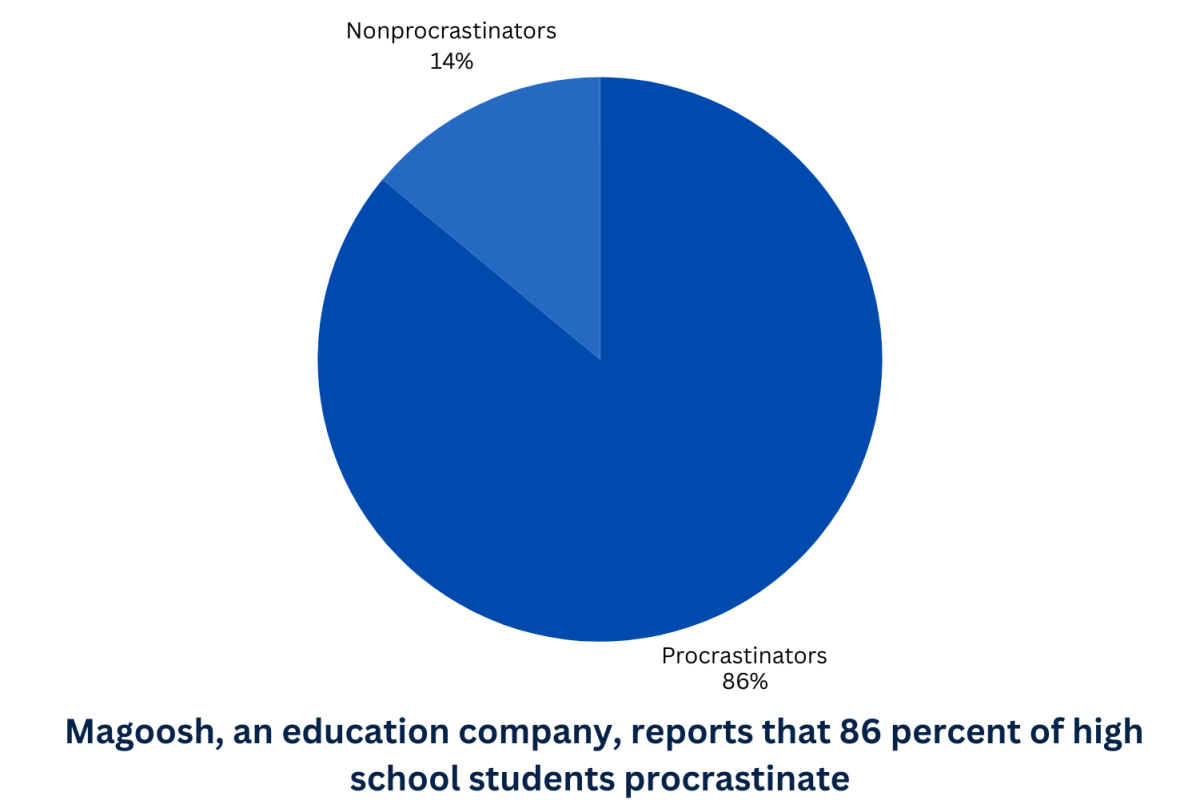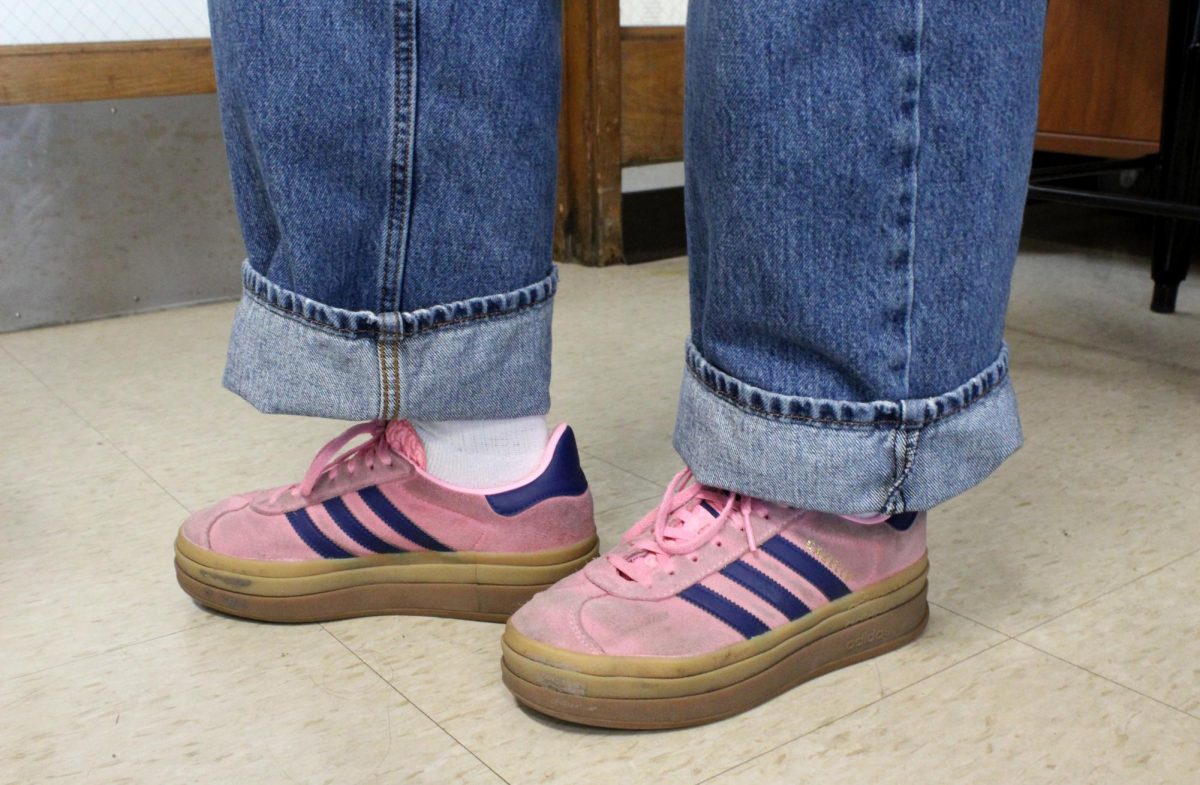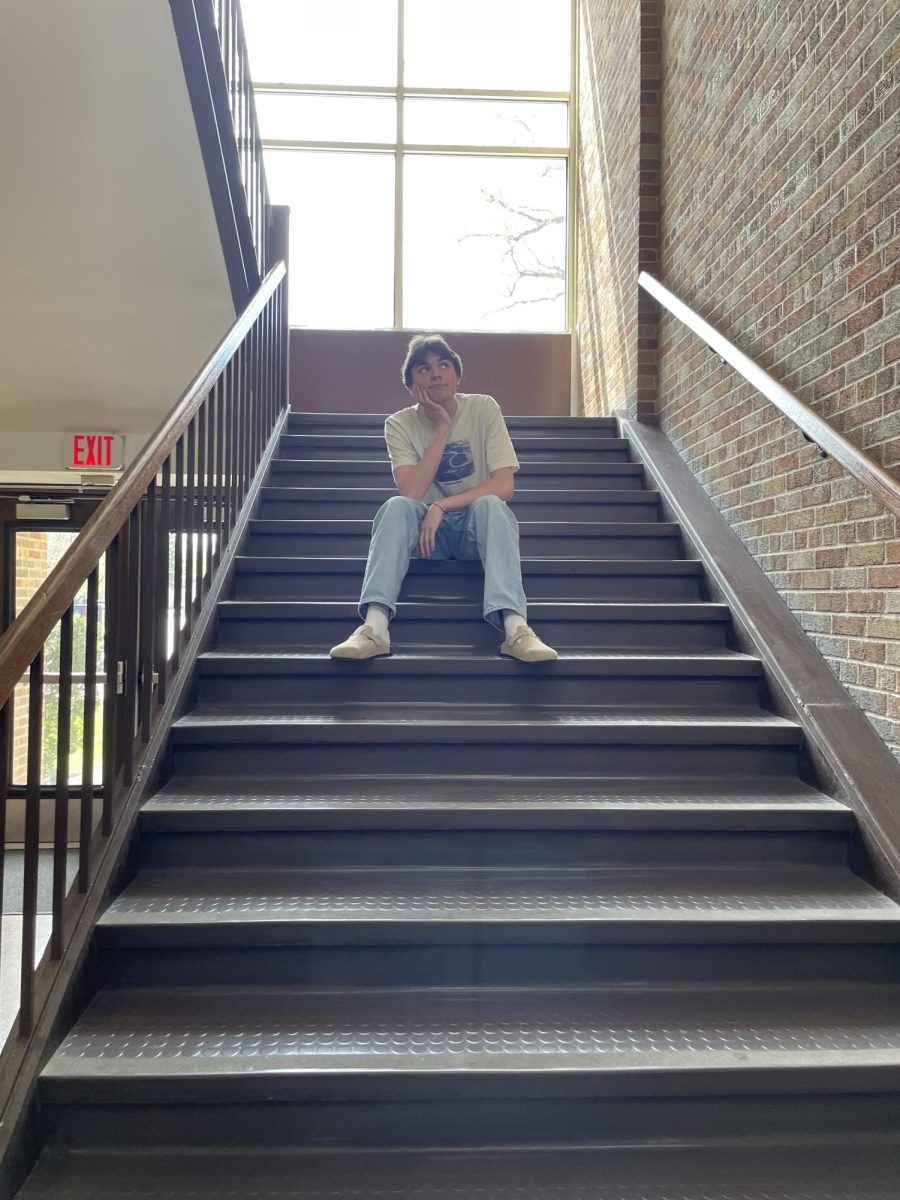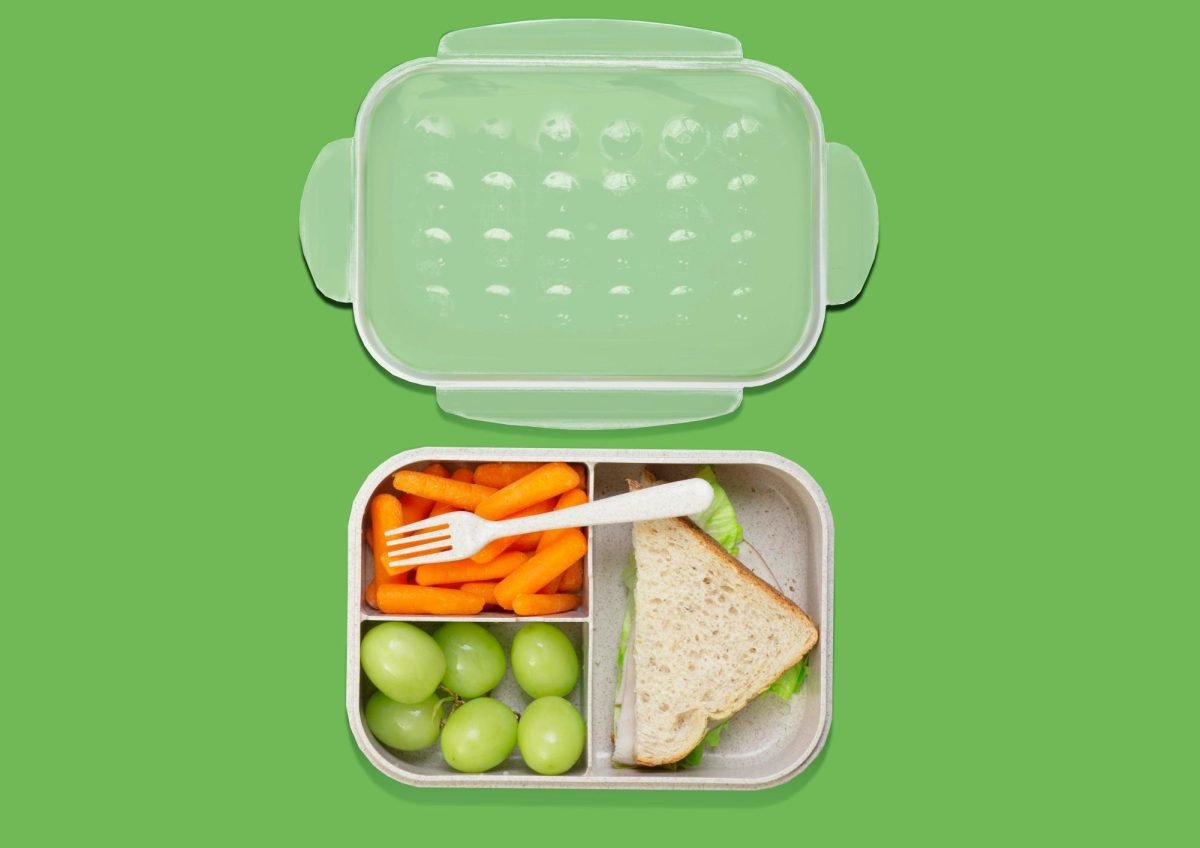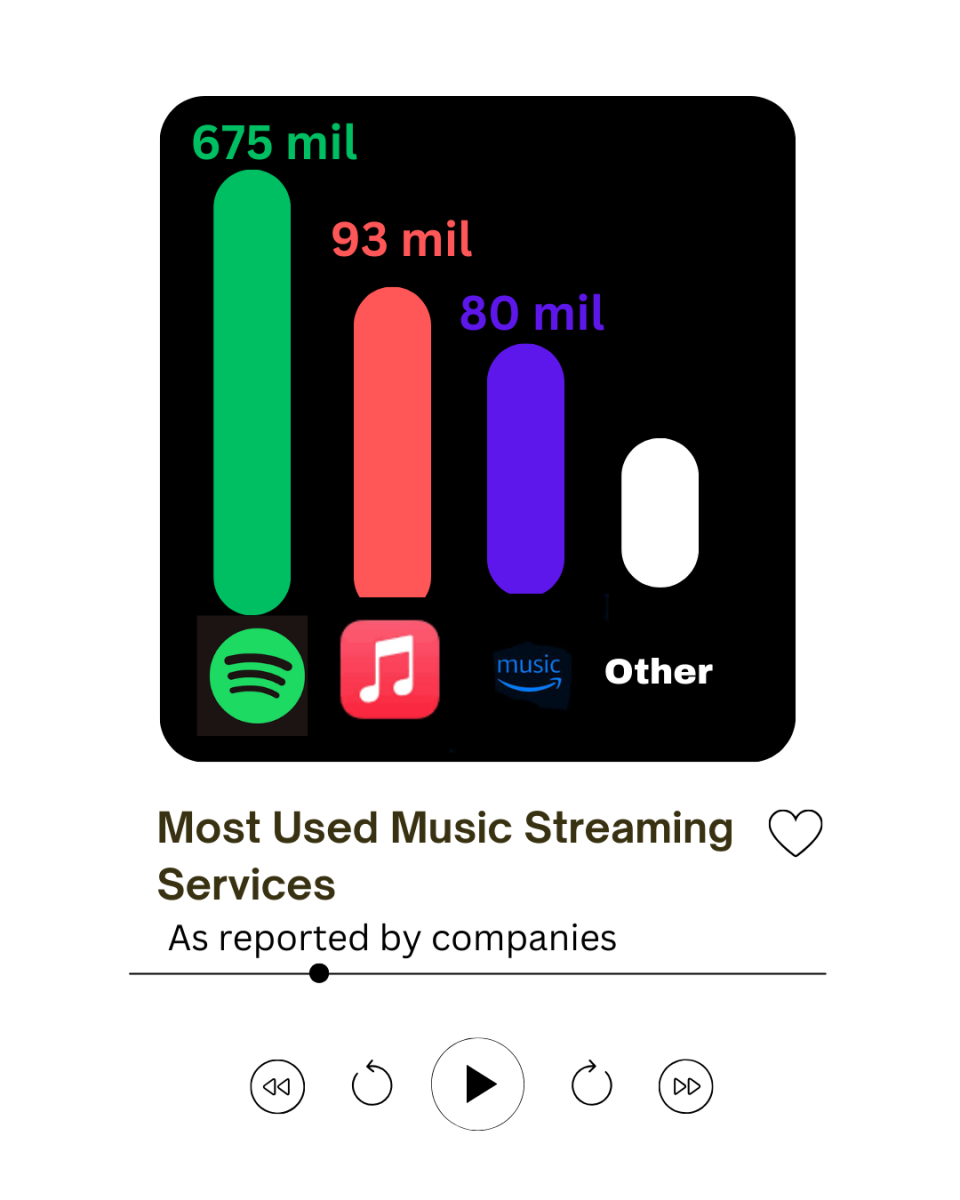It’s peak hour in the cafeteria: students scrambling for their seats, the food lines filled with hungry teenagers on the prowl. After they scarf down all their goodies and the bell sounds to end the period, they scramble to their classes; they filter out, throwing their trash in the cans strategically placed around the perimeter of the cafeteria for smooth access.
Everything goes in: you throw your french fry box in completely empty, your greased pizza plate, and toss your Vitamin Water bottle daintily into the garbage can.
Now, what’s so terrible about cleaning up after yourself? That’s what you’re supposed to do, right? So, what’s missing? An efficient recycling system.
Over my three years so far at LHS, I’ve noticed that recycling could be improved in a major way. On a daily basis, I witness students and teachers alike throwing their materials in the improper bin or choosing not to recycle even though the bin is right next to the trash can. Is this because they’re in a rush, because they’re uninformed, or because people simply do not care about the issue?
Another question is whose job is it to monitor the bins? To put things simply, it’s not necessarily a teacher’s responsibility; it’s everyone’s.
Breaking the habit of not recycling is what matters — the more people who choose to utilize the recycling we already have at LHS, the better.
But what about the cafeteria, our prime space with the most traffic of recyclable materials, almost all of which end up in the dark abyss of trash cans? Only a few hidden tiny bins that most don’t know are even there.
According to English teacher and LEAF advisor Mr. Dave Lapish, LHS used to have legitimate recycling in the cafeteria but students failed to utilize the bins correctly.
“When I first started working here — maybe a few years after that, we did have recycling in the cafeteria. They [had] the same problem that we have in all the classroom recycling bins, in that people who put the wrong thing in there and actually in the cafeteria they would even put a higher percentage of non-recyclables in with the recyclables and it became such a hassle from what I understand from brief conversations I had with maintenance guys, that they just couldn’t handle sorting out all of the right stuff from the wrong stuff,” he explained. “At some point they just realized they couldn’t do it anymore.”
Despite the fact that some people will choose not to recycle even if a better system was established, whether out of carelessness or out of habit, improvement of a situation, even in the smallest numbers is progress.
According to the Columbia Water Center, at Columbia University’s Earth Institute in New York “More than 80 percent of recyclable plastic bottles end up in landfills each year.” These bottles release toxic chemicals and cannot break down naturally.
Breaking a habit is hard and requires repetitive actions to change. If someone never recycles at their own household or does not have a recycling system in their neighborhood, they probably don’t think too much of it at school.
While money is necessary to provide labor and grand-scale recycling bins, all of the bottles we waste every day within our own walls should be enough of a reason to spend the money.
Next time when you walk past the recycling bins in your LST, your chemistry class or wherever it may be, read the signs that tell you exactly what goes in what bin, and take the extra second to place your bottle, can, paper, box, or whatever it may be in the proper place. It’s not rocket science, it’s recycling.



